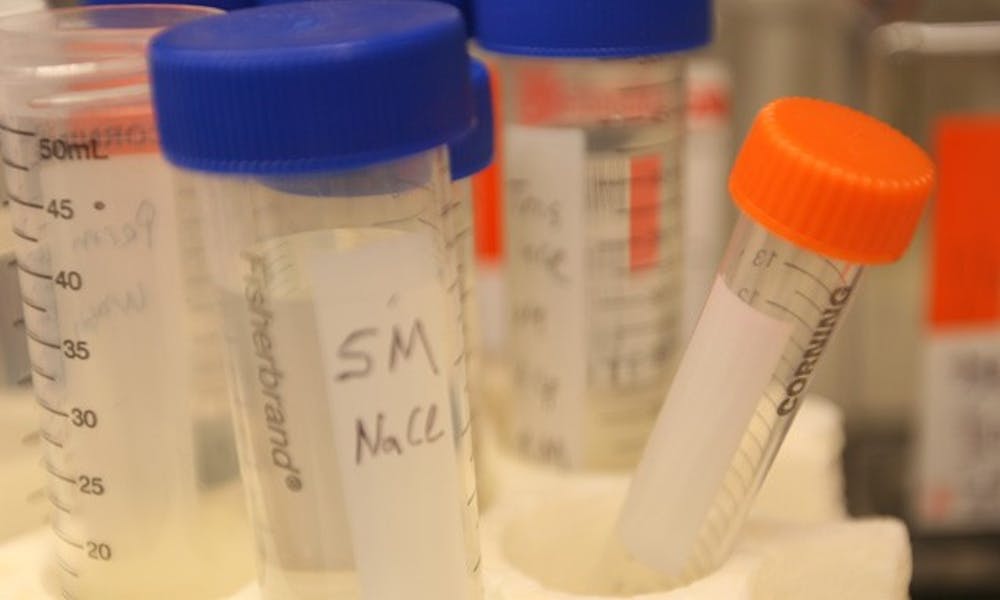Researchers are preparing for trials of a new HIV vaccine that accounts for the diverse nature of the deadly virus’ strains.
An international group of scientists is preparing for human trials of a mosaic HIV vaccine. The team will be led by Dr. Barton Haynes, director of the Duke Human Vaccine Institute and the Center for HIV/AIDS Vaccine Immunology.
The team hopes to launch a small human trial with approximately 150 participants by 2012, said Bette Korber, a senior scientist at Los Alamos National Laboratory.
Mosaic vaccines consist of many synthetic sequences of proteins that are generated by computer software. Relative to traditional HIV vaccines, this key characteristic helps the immune system respond to the diverse strains of HIV.
“HIV is really very variable,” Korber said. “It plays a cat-and-mouse game with its host.”
The HIV virus is a diverse pathogen and mutates very quickly because it contains an error-prone enzyme that makes mistakes as it replicates. As the body’s immune system fights the virus, the resulting mutations may evade the immune system and then take over.
A mosaic vaccine tends to account for the diversity of these forms. For the past 25 years, Korber has led a team of researchers in collecting hundreds of thousands of sequences of the global HIV epidemic. That data has been analyzed by a computer system and used to create the mosaic genes contained in the vaccine.
By switching different portions of the HIV genome, the computer tries millions of combinations until it obtains the most common sequence out of all the known databases, Haynes said.
“Computational analysis [has generated] an envelope of genes that has the best coverage over several natural HIV genes,” said Dr. Hua-Xin Liao, research director of HVI and developer of the vaccine.
Mosaic vaccines are expected to result in better outcomes than their traditional counterparts. In trials conducted on monkeys, mosaic genes generated a broader and better immune response than any natural gene.
In addition to the synthetic genes the group will use the NYVAC vaccinia vector, a part of the smallpox vaccine. It has already been tried in humans and gives an anti-HIV immune response, Haynes said. A trial of more than 16,000 volunteers from Thailand generated an anti-HIV immune response, having a protection rate of 31 percent.
Using the NYVAC vaccinia vector in the mosaic HIV vaccine may induce better immune responses from humans, Liao said.
Together, the trials give researchers hope that their work might yield positive results for humans.
“All of the vaccine candidates up until today that have been tried have not addressed at all the diversity of the virus,” Haynes said. “If this trial is successful in inducing more broad responses, then we think it will have the possibility of improving upon the good results [indicated in the Thai trial].”
The next two years will primarily be spent on designing the initial phase of the clinical trial for the mosaic vaccine. Funding for the trial will come from the Bill & Melinda Gates Foundation and the National Institute of Allergy and Infectious Diseases, a part of the National Institutes of Health.
“It is one of several good ideas out there… [and] it has a chance of working,” Korber said.
Get The Chronicle straight to your inbox
Signup for our weekly newsletter. Cancel at any time.

